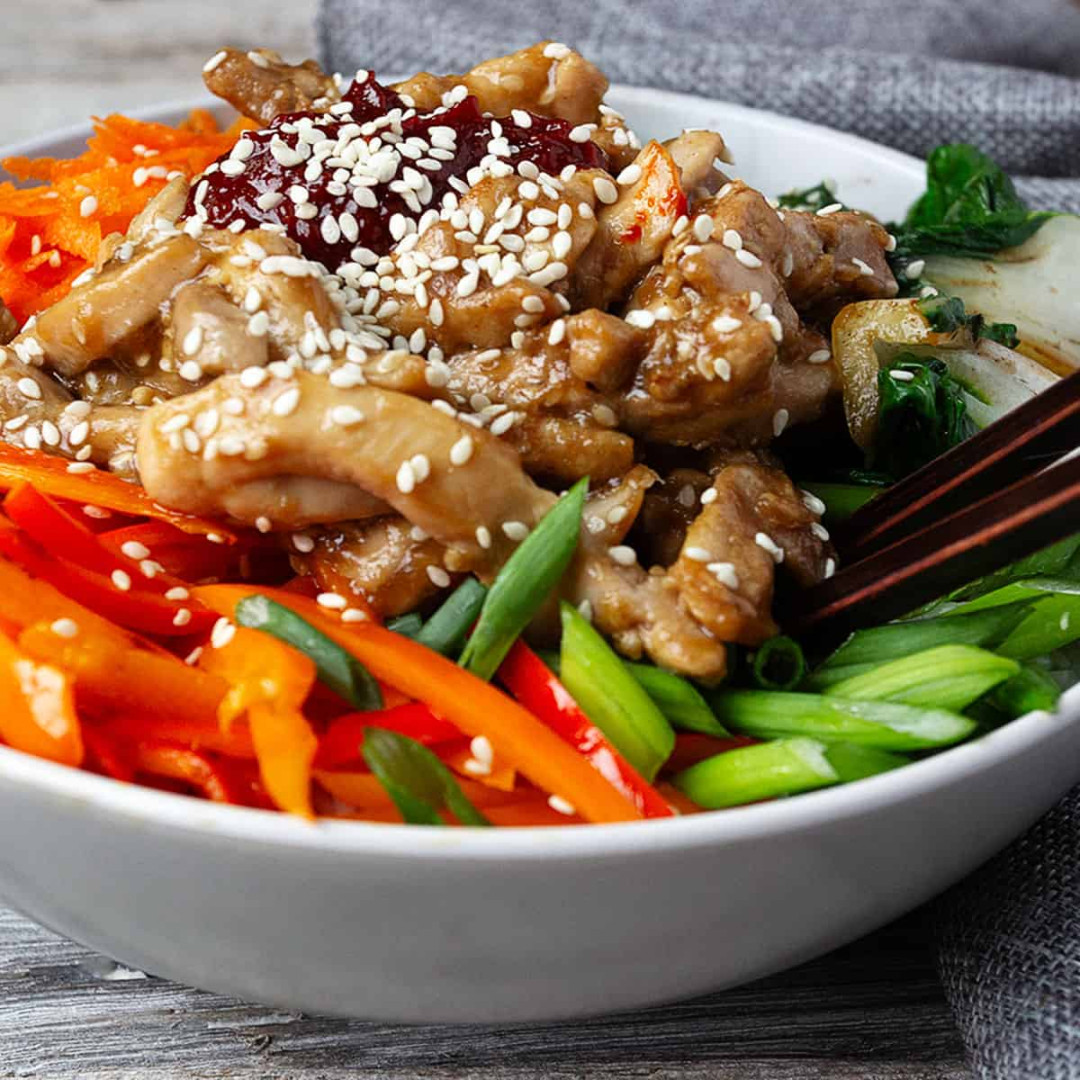Disclaimer: This is a creative writing prompt, and the recipe provided is a fictional interpretation inspired by the popular Korean dish, bibimbap.
Ingredients:
1 lb boneless, skinless chicken breasts, cut into bite-sized pieces

Image Source: seasonsandsuppers.ca
Preparation Time: 20 minutes
Cooking Time: 25 minutes
Total Time: 45 minutes
Let’s Get Cooking!
1. Marinate the Chicken: In a bowl, combine the chicken, soy sauce, sesame oil, garlic powder, and ginger powder. Marinate for at least 15 minutes.
2. Cook the Chicken: Heat a skillet over medium-high heat. Add the marinated chicken and cook until browned and cooked through.
3. Prep the Veggies: While the chicken cooks, steam the mixed vegetables until tender-crisp.
4. Assemble the Bibimbap: In individual bowls, layer the cooked rice, mixed vegetables, kimchi, and cooked chicken. Top with a fried egg, shredded nori, and sesame seeds.
5. Serve: Serve immediately with a generous drizzle of gochujang sauce.
A Culinary Journey Through Cultures
This dish is a playful homage to the vibrant flavors of Korean cuisine. Bibimbap, a beloved Korean comfort food, is a colorful and satisfying meal that typically features rice, vegetables, meat, and a fried egg. Our fusion twist takes inspiration from the diverse culinary traditions of East Asia, combining the bold flavors of Korean cuisine with the delicate elegance of Japanese cooking.
The addition of kimchi, a fermented Korean side dish, adds a tangy and spicy kick to the dish. The nori, a dried seaweed used in Japanese cuisine, provides a subtle umami flavor. And the sesame seeds, a common ingredient in both Korean and Japanese cooking, add a nutty crunch.
By blending these cultural influences, we’ve created a dish that is both familiar and exotic, a culinary adventure that satisfies the palate and the soul.